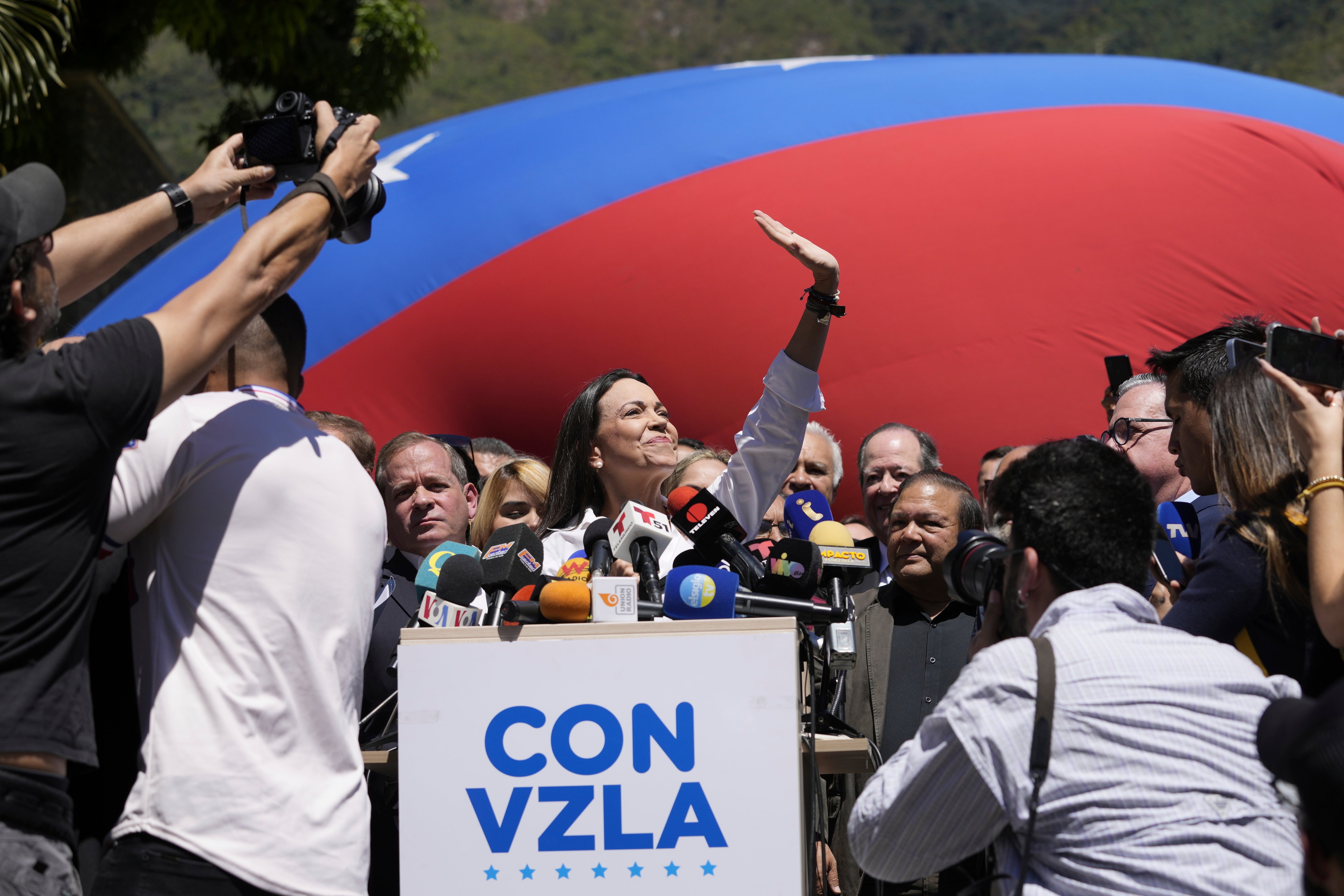US considering more measures against Venezuelan President Maduro after pulling some sanctions relief
The U.S. is considering additional measures against Venezuelan President Nicolás Maduro’s government after the South American country’s highest court blocked the presidential candidacy of an opposition leader

Your support helps us to tell the story
From reproductive rights to climate change to Big Tech, The Independent is on the ground when the story is developing. Whether it's investigating the financials of Elon Musk's pro-Trump PAC or producing our latest documentary, 'The A Word', which shines a light on the American women fighting for reproductive rights, we know how important it is to parse out the facts from the messaging.
At such a critical moment in US history, we need reporters on the ground. Your donation allows us to keep sending journalists to speak to both sides of the story.
The Independent is trusted by Americans across the entire political spectrum. And unlike many other quality news outlets, we choose not to lock Americans out of our reporting and analysis with paywalls. We believe quality journalism should be available to everyone, paid for by those who can afford it.
Your support makes all the difference.The U.S. is considering additional measures against Venezuelan President Nicolás Maduro ’s government after the South American country’s highest court blocked the presidential candidacy of an opposition leader.
This comes after the U.S. government on Monday pulled back part of the sanctions relief it granted Venezuela last year, following through on its threat to do so after Maduro reneged on a deal his administration made last year in Barbados with the Venezuelan opposition to hold free elections in 2024.
On Friday, Venezuela’s Supreme Court, aligned with Maduro’s government, upheld a ban on opposition leader María Corina Machado, a longtime government foe and winner of the primary held by the opposition faction backed by the U.S.
Machado, a former lawmaker, won the opposition’s independently-run presidential primary with more than 90% of the votes. Her victory came despite the government announcing a 15-year ban on her running for office just days after she formally entered the race in June.
A spokesperson for the National Security Council said the U.S. is clear about the path forward in support of democratic elections and is considering additional measures against the Maduro regime.
The Treasury Department’s Office of Foreign Assets Control on Monday gave companies doing business with Venezuela’s state-owned mining company until Feb. 13 to wind down operations.
The department had allowed transactions with the mining company in October after the Maduro government agreed to level the playing field ahead of this year’s presidential election. The deal narrowed the scheduling of the election to the second half of 2024 and called on both sides to “promote the authorization of all presidential candidates and political parties” to participate as long as they comply with the law.
Matthew Miller, a U.S. State Department spokesperson, said the Barbados electoral roadmap is the most viable mechanism to resolving Venezuela’s longstanding political and economic problems. But, he said, “that will require Maduro and his representatives upholding the roadmap’s principles and ensuring that opposition political actors have the right to select their candidates for the 2024 presidential election freely.”
___
Garcia Cano contributed to this report from Caracas, Venezuela.